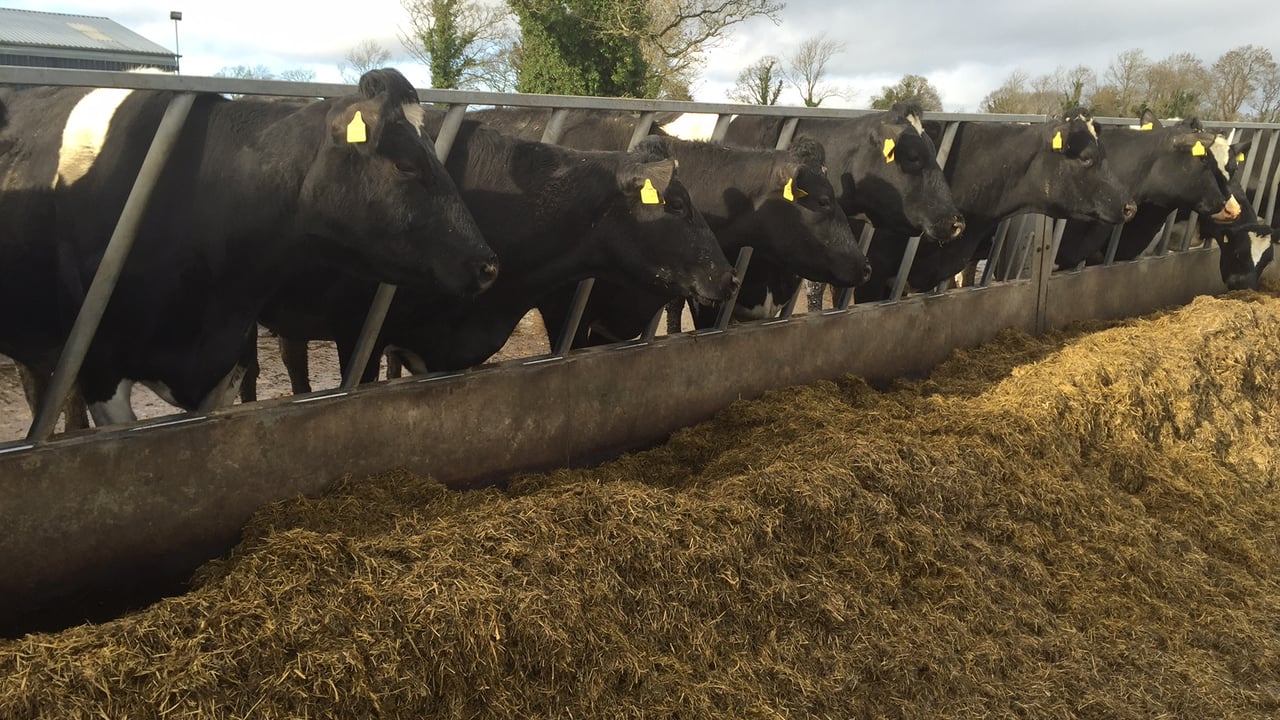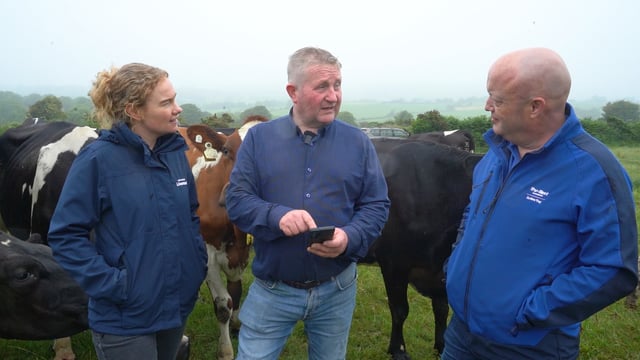Can farmers reduce enteric methane through the cow's diet?
Enteric methane is one area of dairy farming that appears to be under frequent scrutiny. We know that there are ways of breeding for an animal that produces less methane, but how can we reduce this enteric fermentation through the cow's diet?
Reducing and mitigating enteric fermentation (a by-product of feed digestion within the animals rumen) is recognised as the quickest way to slow down its impact on the atmosphere.
There has been a number of different methods tested and proven to reduce methane, and dietary supplementation has seen a substantial reduction in a lot of cases.
Different types of dietary supplementation have been trialled and tested throughout the years, with all of them showing reductions - along with barriers and disadvantages.
It is fair to say, that there is no product out there at the minute that shows steady reductions in methane in a grass-based system, without having any flaws or disadvantages.
Methane represents 62.5% of Irish agricultural greenhouse gas (GHG) emissions. Given the targets of reducing agricultural emissions by 25% by 2030, there should be an emphasis placed on reducing enteric methane.
A Teagasc study researched the different types of supplements that can be added to the diet in an effort to reduce enteric fermentation.
There is still ongoing research around all the possible supplements, including RumenGlas (CaO₂), which found that this additive reduced enteric methane when only fed in the morning and evening.
When there were low levels of the additive added to a beef diet, enteric methane was reduced by 16%. When there were high levels added to a beef diet, there was a 28% reduction in methane.
In a dairy diet, when there was high levels of RumenGlas (CaO₂) added, there showed to be a reduction of methane of 12.5%.
Teagasc experimented with different supplementations to reduce methane, and the results were as follows:
| Supplementation | Methane reduction |
|---|---|
| Linseed oil (4%) | 19% |
| Rapeseed oil (2.5%) | 8% |
| Rapeseed cake (14.5%) | 8% |
| Brown seaweed (2%) | 4% |
| Brown seaweed extract (2%) | 8% |
Fats and oil have been trialled and tested and can prove to be very useful due to their high energy density, but can only make up 6% of the diet before they effect the cow's performance.
Seaweeds can also prove very useful in a cow's diet to reduce methane but large amounts added grows concerns for the possibility of the additive effecting cow's performance, fertility and milk quality.
A separate study had the objective of investigating the effect of 3-nitrooxypropanol (3-NOP) on enteric methane production of Irish winter milk cows.
There were two treatments in the experiment with a group of cows being fed a diet of 78mg of 3-NOP/kg of DM and a control group that were fed a diet with no 3-NOP.
The winter diets consisted of 32% grass silage, 32% maize silage with 36% concentrates also being fed.
Cows that were fed 3-NOP proved to have a 26% lower methane production (g/cow/day) and a 28% lower methane intensity (g/kg of milk solids) when compared to the control diet.
Overall, the results were promising for methane mitigation during housed periods, however, there is not enough concrete evidence that there is consistent reductions when cow's are out at grass.
Although the research showed a promising outcome for methane reducing feed additives in Irish wintermilk systems, further solutions are required to see results when cows are not housed.





